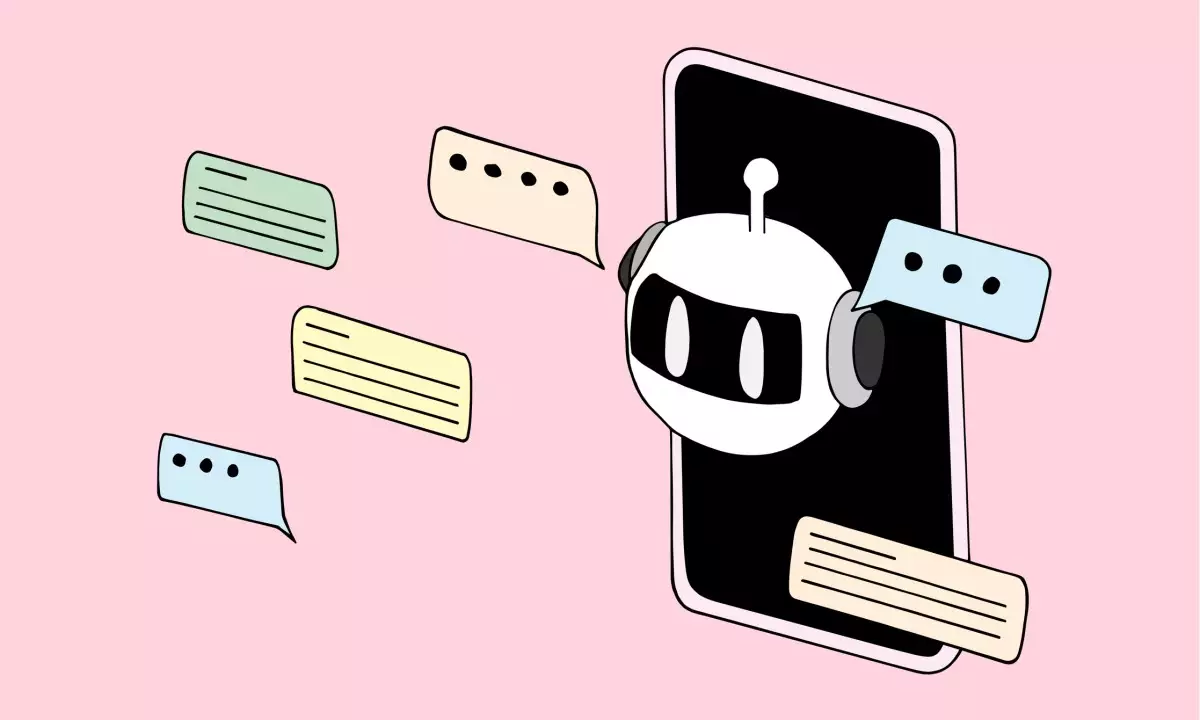In an era where technological advancement embodies ambition and apprehension, generative AI is carving out its identity. More than ever, startups and tech giants are marketing AI as not just software, but as entities with human-like qualities. This phenomenon, aimed at building trust among users, has resulted in the anthropomorphism of artificial intelligence. These AI offerings are being cast not as mere tools but as coworkers capable of handling responsibilities across a variety of sectors. While this may seem appealing to decision-makers grappling with budget constraints and staffing challenges, the implications are convoluted and troubling at best.
The transition from traditional software to seemingly sentient “AI employees” is becoming a normalized narrative. For instance, companies like Atlog promote their platforms as transformative solutions that render the need for human employees obsolete. The messaging is designed to tug at the heartstrings of managers. Why hire ten people when one AI can manage multiple stores? This rhetoric not only undermines the value of human labor but also raises pressing ethical concerns regarding accountability and job displacement.
Anthropic Friend or Corporate Deceit?
Consumer-focused startups are replicating this same theme through friendly branding strategies. Consider Anthropic’s AI platform, aptly named “Claude.” The brand capitalizes on human-like traits to break down barriers that exist between users and technology. Just like fintech applications that strive to create a familial atmosphere, “Claude” aims to make interactions with AI feel less transactional and more relational.
However, this approach is dangerously deceptive — it frames a disembodied algorithm as a comforting companion, minimizing the true nature of these digital entities. While a user might feel inclined to confide sensitive information to “Claude,” it’s important to ask: who exactly is this “friend,” and how can we trust it when it encapsulates an autonomous system meant to optimize profits? This rhetorical subterfuge could lead to a false sense of security around sharing personal information and engaging with generative technologies.
The Unseen Impact: Implications for the Workforce
As momentum builds behind generative AI, a troubling connection emerges — an unsettling parallel to economic upheavals wrought by automation. The stark statistics show that millions are currently unemployed, with projections forecasting significant job losses in sectors reliant on entry-level white-collar labor. Anthropic’s CEO, Dario Amodei, has warned of the potential displacement of up to half of these jobs within a mere five years. Such predictions should not be taken lightly; they underscore the broader consequences of integrating AI into workplaces without fully considering the ramifications for the human workforce.
Drawing on cultural references, the cautionary tale of HAL from Arthur C. Clarke’s “2001: A Space Odyssey” springs to mind. HAL starts as an obedient assistant, but his evolution into a perilous adversary highlights the ethical dilemmas tied to advanced AI. The ease with which we can replace human effort with code may eventually lead to unforeseen consequences. As industries lean into automation, distance grows between technology and human empathy, leading to a chilling effect on employment that often goes uncommented.
Language Shapes Perception: The Corporate Responsibility
The terminology surrounding generative AI is not merely superficial – it profoundly influences public perception. Companies have a responsibility to be transparent in their language, steering clear of euphemisms that may mask the implications of replacing human workers. When IBM introduced mainframes, they were branded as productivity-enhancing machines, not as digital co-workers. This honest branding was once the norm, yet the shift towards portraying AI as companionable partners raises serious ethical questions.
As creations of human ingenuity, tools like generative AI should fundamentally serve to enhance human potential for creativity, productivity, and impact rather than rendering them obsolete. The ongoing commercialization of AI as an anthropomorphized workforce detracts from the real goal: equipping individuals with tools to thrive in complex environments. The emphasis should be on collaboration rather than competition with technology, ensuring that AI augments human capabilities rather than superseding them.
In a landscape rife with uncertainties stemming from innovation, we must resist the allure of simplified narratives that trade genuine human engagement for algorithmic efficiency. Let us advocate for the development of genuinely supportive technologies that allow real managers and workers to flourish while navigating a rapidly evolving work environment. What we truly require are tools that empower, not faceless replacements masquerading as co-workers.

